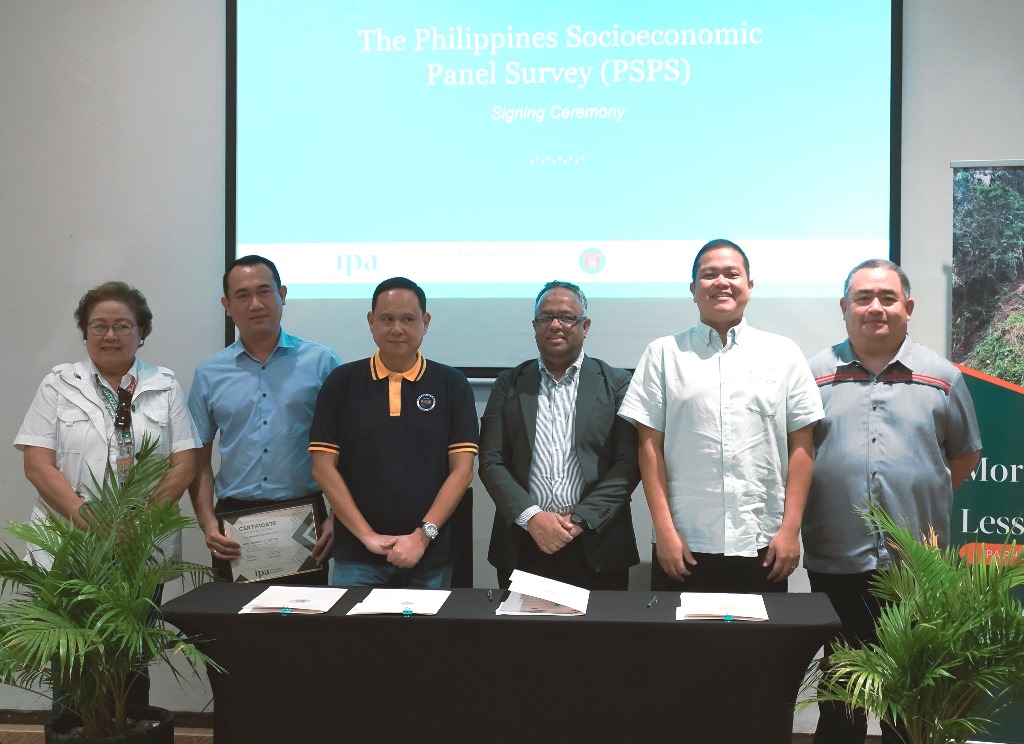IPA Philippines Signs Memoranda of Understanding with Provinces in Western Visayas for the Philippines Socioeconomic Panel Survey

Iloilo City – On February 4, 2024, IPA Philippines signed Memoranda of Understanding (MoU) with respective provinces in Western Visayas to implement the Philippines Socioeconomic Panel Survey (PSPS). This marks a pivotal step towards evidence-based policymaking in Western Visayas.
The MoU was signed in-person between IPA Philippines Country Director Aftab Opel and Hon. Governor Jose Enrique M. Miraflores of Aklan, Hon. Governor Rhodora J. Cadiao of Antique, Hon. Governor Arthur R. Defensor Jr. of Iloilo, and Sir Wilar de los Santos (representative of Capiz). The Provincial Government of Negros Occidental also conducted their own signing ceremony to endorse this initiative. The support of the Governors ensures that knowledge generated from the research will be used to address pressing issues in their respective provinces.
Regional Director Eng. Jong Casing from National Economic and Development Authority Region 6 closed the signing ceremony.
IPA Philippines is committed to leveraging PSPS data to inform policy through rigorous research projects and to equip decision-makers to use evidence through capacity-building on a broader scale. The data from the PSPS will be publicly available by November 2024. The goal of its release is to initiate more conversations among local leaders on leveraging insights and catalyzing learning through IPA’s partnership with the Philippines Institute for Development Studies (PIDS), the University of the Philippines School of Economics (UPSE), and the Global Poverty Research Lab at Northwestern University (GPRL).












